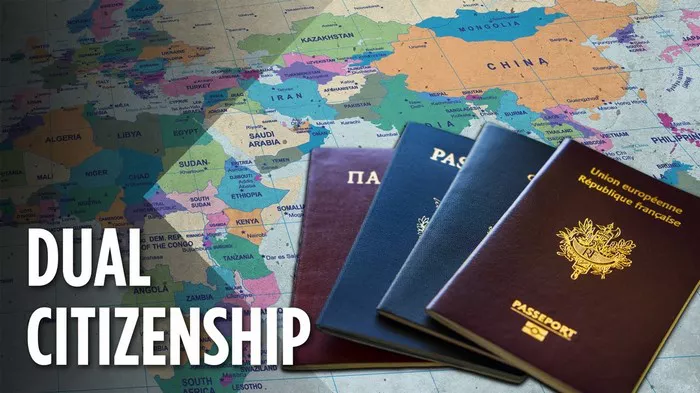In an increasingly interconnected world, the concept of citizenship is evolving, leading to a rise in dual citizenship arrangements. Dual citizenship, also known as dual nationality, refers to an individual’s status as a citizen of two countries simultaneously. While this status can offer numerous benefits, it also presents challenges and drawbacks. This article delves into the advantages and disadvantages of dual citizenship, examining its implications for individuals, societies, and governments.
Advantages of Dual Citizenship
1. Enhanced Travel Opportunities: One of the most evident advantages of dual citizenship is the expanded freedom of movement it provides. Dual citizens can travel more easily between their two countries of citizenship without the need for visas or lengthy immigration processes. This can be particularly advantageous for business professionals, students, and individuals with family ties in both countries.
2. Access to More Rights and Benefits: Dual citizenship often grants individuals access to a broader range of rights and benefits in each of their countries of citizenship. This may include the ability to vote, own property, work, and access social services such as healthcare and education. By leveraging the advantages of both citizenships, individuals can enjoy a more comprehensive set of privileges and opportunities.
3. Cultural Connection and Identity: For many dual citizens, having ties to multiple countries fosters a sense of cultural connection and identity. They may feel a strong affinity for the customs, traditions, and languages of both countries, enriching their personal experiences and worldview. Dual citizenship allows individuals to maintain close ties with their heritage while embracing new cultural influences, promoting diversity and cross-cultural understanding.
4. Business and Economic Opportunities: Dual citizenship can open doors to a wide range of business and economic opportunities. Individuals with dual citizenship may find it easier to establish businesses, invest, or pursue employment opportunities in either of their countries of citizenship. This flexibility can be particularly advantageous in industries with global reach or those that require international collaboration.
5. Residency and Retirement Options: Dual citizenship can provide individuals with more flexibility when it comes to residency and retirement planning. They may choose to reside in one country while maintaining citizenship in another, allowing them to benefit from favorable tax regimes, healthcare systems, or lifestyle preferences. Dual citizenship can also offer peace of mind by providing access to retirement benefits and social security programs in both countries.
Disadvantages of Dual Citizenship
1. Legal and Regulatory Complexity: One of the primary disadvantages of dual citizenship is the inherent legal and regulatory complexity it entails. Each country has its own set of laws, regulations, and obligations regarding citizenship, which can lead to confusion and bureaucratic hurdles for dual citizens. Navigating legal issues such as taxation, military service requirements, and eligibility for public office can be challenging and may require professional assistance.
2. Potential for Conflicting Allegiances: Dual citizenship can raise questions about loyalty and allegiance, especially in situations where the interests of the two countries diverge. Some individuals may face pressure to choose sides or may be perceived as having divided loyalties, particularly during times of political tension or conflict between their countries of citizenship. This can create personal and social tensions, affecting relationships and opportunities.
3. Limited Consular Protection: While dual citizens enjoy certain rights and benefits in each of their countries of citizenship, they may also face limitations in terms of consular protection. In cases of legal or diplomatic issues abroad, dual citizens may find themselves in a situation where neither country is fully able or willing to provide adequate support or assistance. This can leave them vulnerable in situations such as emergencies, legal disputes, or travel-related incidents.
4. Potential for Double Taxation: Taxation can be a complex issue for dual citizens, as they may be subject to taxation in both countries based on their worldwide income and assets. While some countries have tax treaties in place to prevent double taxation, others do not, leading to potential financial burdens and compliance challenges for dual citizens. Managing tax obligations across multiple jurisdictions can require careful planning and professional advice to avoid penalties and optimize tax efficiency.
5. Social and Cultural Integration Challenges: Dual citizenship can present challenges in terms of social and cultural integration, particularly for individuals who hold citizenship in countries with different languages, values, and societal norms. They may struggle to fully integrate into either society, feeling like outsiders or experiencing identity conflicts. Additionally, dual citizenship may complicate issues such as education, healthcare, and social relationships, as individuals navigate between multiple cultural contexts.
Conclusion
Dual citizenship offers a myriad of advantages, including enhanced travel opportunities, access to more rights and benefits, cultural connection, business and economic opportunities, and flexibility in residency and retirement planning. However, it also poses challenges such as legal and regulatory complexity, potential for conflicting allegiances, limited consular protection, double taxation, and social and cultural integration challenges.
Ultimately, the decision to pursue dual citizenship depends on individual circumstances, priorities, and preferences. While some may embrace the benefits of dual citizenship as a means of enriching their lives and opportunities, others may weigh the drawbacks and complexities more heavily. As the world continues to globalize and citizenship becomes increasingly fluid, understanding the advantages and disadvantages of dual citizenship is essential for individuals, societies, and governments alike.


